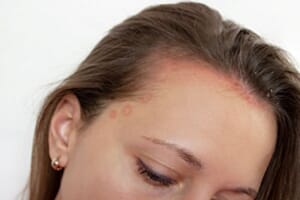Men who have narcissistic personalities may be more prone to psoriasis, according to a new study.
Both men and women can be narcissistic, however the study, carried out by researchers from the Universities of Michigan and Virginia, found that men experience far more negative reactions in their skin and health than women as a result.
Narcissism means a personality dominated by characteristics such as entitlement and inflated self-importance. This type of personality dramatically raises, in men, levels of the stress hormone cortisol. In narcissistic women, the levels of cortisol are not so raised.
Cortisol is a hormone produced by the body that regulates a wide range of bodily functions, including inflammation. Small bursts of acute stress levels can actually increase levels of cortisol and reduce inflammation. [quote]However regular chronic or persistent stress levels, which often accompanies a narcissistic personality due to the perfectionist and exploitative character traits, can lead to an overall reduction in cortisol levels[/quote]
A drop in cortisol levels can trigger a psoriasis outbreak or make an existing outbreak worse. It also increases the risk of heart problems.
[quote]People with psoriasis are already at a higher risk of heart problems due to the inflammation caused by psoriasis. Adding narcissistic characteristics causes the risk to raise even higher.[/quote]
The reason why narcissistic men experienced more negative health problem than women has yet to be established.
[quote]The researchers suggested that social definitions of masculinity, such as arrogance and dominance, could make men more prone to developing and indulging in their narcissistic traits than women.[/quote]
Another study in the British Journal of Dermatology found that peak levels of daily stress predicted an increase in psoriasis severity a month later. The peak levels of daily stress were also significantly associated with lower cortisol levels. Those who persistently experienced higher levels of daily stress had lower average cortisol levels than patients who experienced lower levels of daily stress.
The researchers concluded that the “patients with persistently high levels of stressors seem to have a specific psychophysiological profile of lowered cortisol levels and may be particularly vulnerable to the influence of stressors on their psoriasis.”







